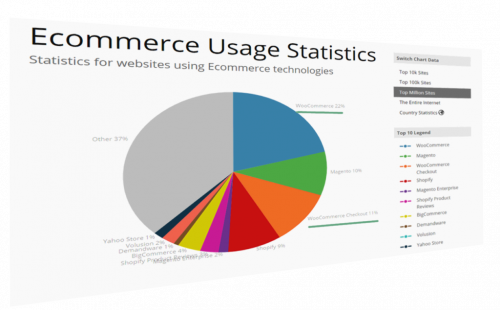SitePoint runs an extensive guide to the WordPress performance optimization. Not only it goes over the usual points like hosting selection and avoiding unnecessary plugins, but it also provides some insight into the WordPress database management and optimization, web server tweaks, and links to a few handy tools to help with performance of your site.
Category: WordPress
WordPress is my favorite Content Management System (CMS). Once in a while it helps me make some extra money. Once in a while it helps me look at the problem from a different perspective. But even when it doesn’t, I still enjoy using it for this (and a few other) websites. And I enjoy interacting with the community. I use this category to share bits and pieces which are WordPress related.
WordPress : Getting Ready for Gutenberg
Here are some very exciting news from the WordPress fronts: WordPress 5 will feature the built-in Gutenberg project. Gutenberg is a complete rebuilt of the WordPress administration and content publishing experience, with much faster and cleaner user interface and a whole array of new features, such as “page builder” functionality.
Here are a couple of links with more information on how to get yourself ready in time:
wpplugincheck – in-depth reviews of WordPress plugins
My WordPress radar noticed a new website – wpplugincheck. This website provides in-depth reviews of WordPress plugins. I’ve checked a few of those and they seem solid – honest and to the point.
There’s a gadzillion of websites online that review WordPress plugins (occasionally including even my own blog), but most of those either get too commercial with sponsored posts, or turn into collections of “5 best of this” and “7 awesome of this”. I hope the site continues and gets into a routine of publishing reviews of the new and updated plugins, especially focusing on the areas where there are a lot of choices, or not enough.
WordPress Plugin Boilerplate – a standardized, organized, object-oriented foundation for building high-quality WordPress Plugins
WordPress is an excellent system for a whole lot of different projects and needs. It’s widely used, fast, and flexible. However it does show its age in many ways. One of the areas where things could be a lot better and simpler is the WordPress plugin development.
WordPress plugins are still non-trivial to develop. This is mostly because WordPress is behind the current technology in many ways: new features of PHP programming language, such as Object-Oriented Programming (OOP), namespaces, dependency management with composer, unit testing, etc. There are good reasons for this, but those don’t help WordPress plugin developers.
What does help is, for example, this WordPress Plugin Boilerplate, which is a standardized, organized, object-oriented foundation for building high-quality WordPress plugins. Using it still requires a bit of effort and dumb find-replace changes. But it saves a tonne of time, as well as trial and error, especially for those people who are working on their first or second WordPress plugin.
How Fast Is Amp Really?
With Accelerated Mobile Pages (AMP) being all the rage recently, I found “How fast is AMP really?” article interesting. It looks like it’s worth spending a tiny bit of time adding AMP to your site, especially if it was developed with one of the common and widely used tools, like WordPress. And if mobile page performance is important for your project, than there’s even more that you can benefit from.
